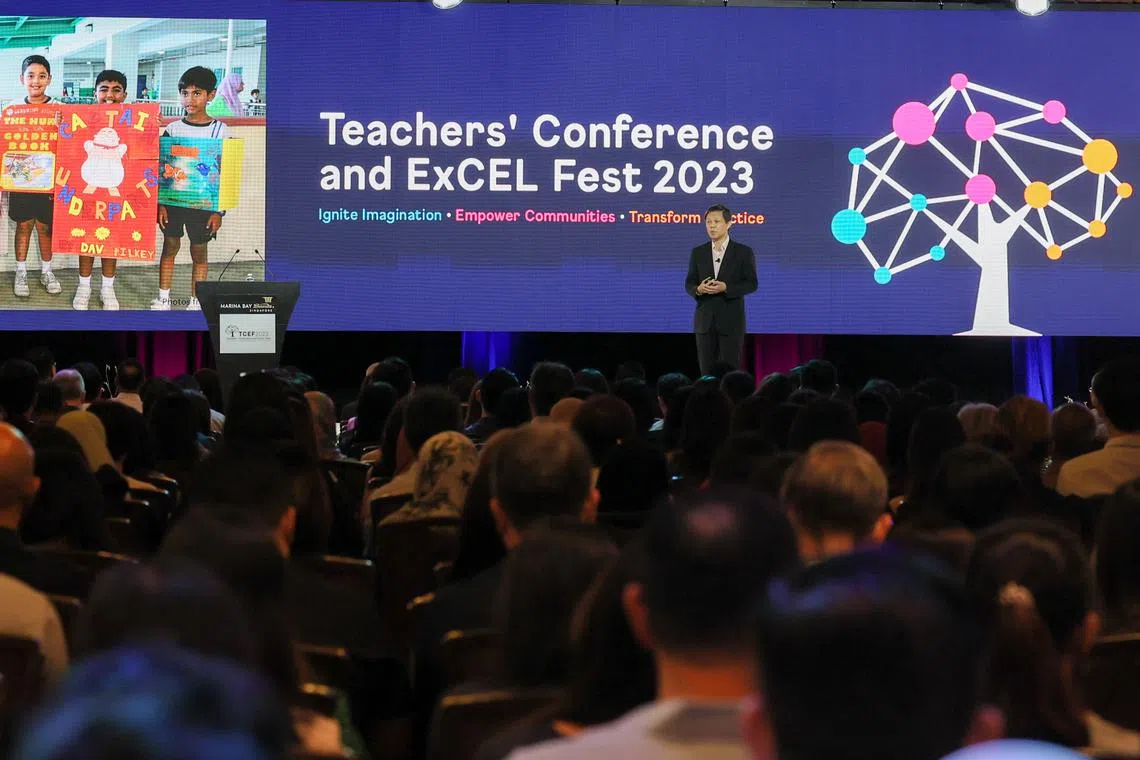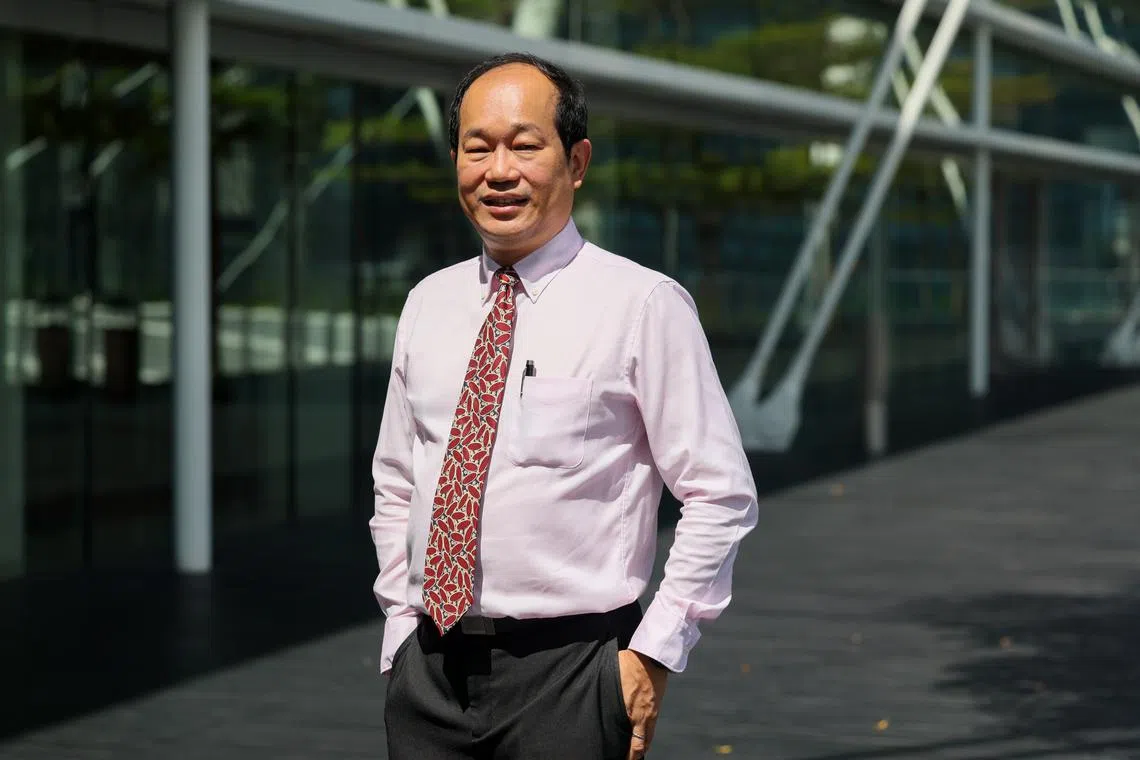Teachers urged to embrace technology, keep learning as centre for character and citizenship studies opens
Sign up now: Get ST's newsletters delivered to your inbox

Education Minister Chan Chun Sing speaking at the Teachers’ Conference and Excel Fest on May 30.
PHOTO: LIANHE ZAOBAO
SINGAPORE - By now, many families with children of school-going age would be familiar with the Singapore Student Learning Space (SLS), an online platform developed by the Ministry of Education (MOE) that was used heavily during the Covid-19 pandemic.
Introduced in 2018, the platform carries 12,000 resources – from lesson designs to videos and assignments – and is used by 84 per cent of students monthly.
To date, teachers have shared 7,500 lessons on SLS, leading to time savings of about 641,000 hours.
Sharing these statistics on Tuesday, Education Minister Chan Chun Sing challenged the 1,500-strong audience of mainly educators to go further, and to continue honing their craft and embrace technology in their lessons. More than 13,000 participants tuned in online.
As part of efforts to equip students and teachers with skills for the future, Mr Chan announced a new research centre for character and citizenship education (CCE) within the National Institute of Education (NIE) – the first of its kind in the region.
The Singapore Centre for CCE, led by Professor Tan Oon Seng, 65, who is currently dean of special projects at NIE, aims to promote professional learning and research in CCE to support the development of children and youth.
Speaking at the Teachers’ Conference and ExCEL Fest held at Marina Bay Sands, Mr Chan said he hopes the centre will develop pedagogies – or teaching methods – that are as strong as those for academic subjects, and be able to spread good practices to the wider teaching fraternity.
CCE must run in parallel with academic development, he said. “While we have developed world-class standards in our academic rigour, we must also have world-class standards in how we develop our students’ competencies beyond academics.”
He added: “Never be complacent that we are topping the charts in Programme for International Student Assessment or Progress in International Reading Literacy Study or anything of that sort. If we are not careful, some other countries with much less resources but much more creative thinking will overtake us...
“There is no reason why our 30,000 to 40,000 in the teaching fraternity cannot organise ourselves better to share faster and to share more.”
Speaking for more than an hour, Mr Chan urged educators to make use of technology and its benefits for teaching and learning, and demonstrated several features on SLS such as auto-grading and a Learning Feedback Assistant, a tool that provides students with feedback on the incorrect use of grammar.
“We need to embrace technology, have our people master it, but master it with the right values so that all of us will benefit,” he said. “We must make our work more effective, more impactful, rather than more or less work.”
The team behind SLS received the inaugural Minister’s Innovation Award, which aims to recognise innovations with large-scale impact across the education system.
Mr Kenneth Lee, who headed a workgroup that coordinated the development of SLS learning resources from 2018 to 2022, said: “SLS is different from commercial platforms that are more subject-specific, which schools have to pay for. With SLS, there is equity of resources across all schools, subjects and levels.

Mr Kenneth Lee headed a workgroup that coordinated the development of SLS learning resources from 2018 to 2022.
PHOTO: LIANHE ZAOBAO
“There was still hesitation at the start of the Covid-19 pandemic, and some teachers were still experimenting... but we saw a shift in attitudes after they saw what SLS can do.”
Mr Lee, who is now director of the character and citizenship branch in MOE’s Student Development Curriculum Division 1, added: “Learning on a digital platform doesn’t mean that the whole lesson goes online. Teachers have to use their professional judgment about how to use SLS to complement what they do in class.”
Another project that received the Minister’s Innovation Award was the Singapore Examinations and Assessment Board’s (SEAB) on-screen marking of national examination scripts.
Ms Sharifah Mufidah Mohamed Aljunied, lead assessment specialist for humanities and aesthetics at SEAB’s planning and development division, said digitising candidates’ hard-copy answer scripts has made marking less labour-intensive and improved script security, as there is no physical transfer and counting of scripts during the process.
The number of teachers involved in the yearly exercise has been reduced by about 50 per cent, saving about 30,000 man-days.
Research and pilot studies were done in 2017 to 2018. In 2019, on-screen marking was done for some subjects. By 2022, all locally marked subjects, including those in the PSLE, are marked this way.
“Every year, more than half a million scripts are marked in Singapore. We wanted to leverage technology and data to improve efficiency and quality of markers,” said Ms Sharifah, adding that the system can provide live targeted feedback on marking.
“It enables supervisors to identify markers who are too lenient or too strict, and to provide guidance... At the end of the exercise, we can also focus on professional discussions about marking and students’ answers instead of operational issues,” she said.



